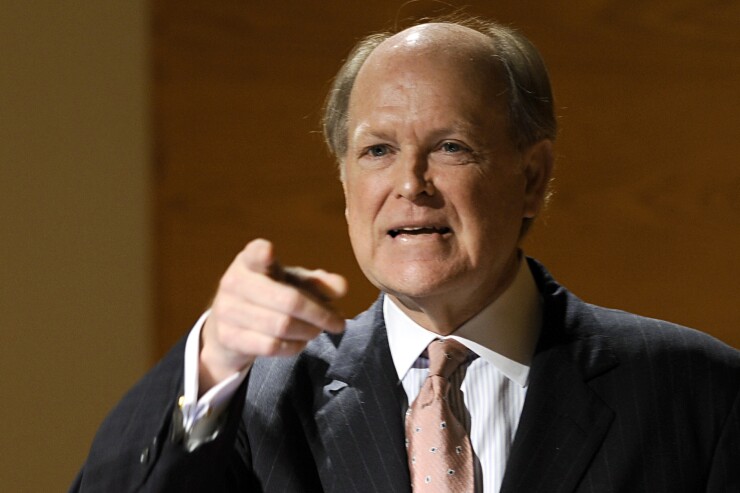Not all of the threats and challenges to the Federal Reserve’s independence and credibility are external, according to former Federal Reserve Bank of Philadelphia President Charles Plosser.
“I would like to say I think these threats and challenges are externally generated,” but that’s not always the case, Plosser told a meeting of the Shadow Open Market Committee, held under the auspices of the Manhattan Institute. The Fed “can and should seek to avoid undermining its own credibility and independence.”

Some examples where this occurs, cited by Plosser on Friday, include “mission creep” or raising expectations of the limits of monetary policy and breaking the boundary between monetary and fiscal policy with “unconventional policy.”
“The case for independence is largely an empirical one,” he stated. But while it is “crucial” the central bank is independent, there must be “constraints.” Those could include “a more narrow mandate,” restrictions on the assets central banks could buy or own and “better defined rules” on its role as a lender of last resort, Plosser said.
For example, during the last financial crisis, the Fed rightfully refused to bail out GM and Ford, he said, but that request arose only after the central bank intervened to save some financial firms. When you try to do too much, there are often “unintended consequences that come back to bite us. That’s what I fear.”
The Fed faces communication challenges that can be solved by being “systematic” and “transparent.” The Fed needs to be able to say, “No. That’s not something monetary policy can do,” he said, so people stop thinking of monetary policy as a cure-all for every economic ill. “Monetary policy can’t prevent recession. It can’t offset a trade war,” Plosser commented. Communications this year “boxed them into a corner.”
The latest rate cuts are not something Plosser advocates. Taking out “insurance cuts” when the economy is performing well is unprecedented, he said. The Fed never took a policy action based on what might happen, it always waited, Plosser added. By acting in advance, the Fed encourages risk taking, when conditions suggest waiting for a resolution before investing.
“Sometimes the best thing to do is wait,” he said.
He also criticized the way the Fed has handle the repo market. “Fed funds aren’t trading,” he said. “The Fed decimated a market.” He said the Fed needs to have a long-term plan. “I don’t know how to fix the problem of the Fed reacting to short-term volatility.”
“The Fed gets more credit than it deserves when things go well and gets more blame than it deserves when things go wrong,” Plosser said.





